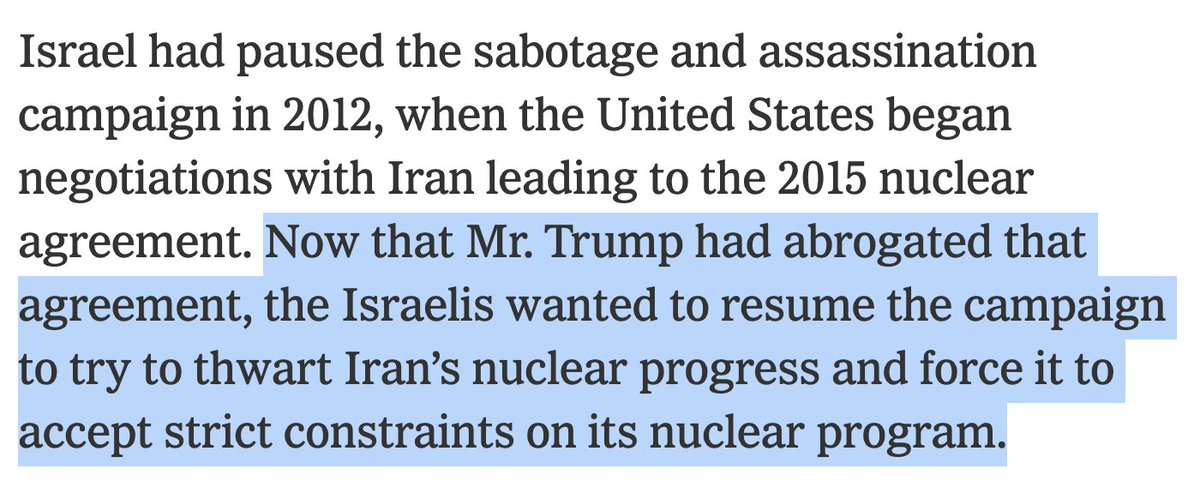
So I have a piece out with new revelations on why the Iran talks are stalling. It’s controversial because it shows that the picture painted thus far- the hold-up is cuz Iran is uninterested or feels immune to US sanctions-is incomplete, to say the least >>
responsiblestatecraft.org/2021/10/20/rev…
responsiblestatecraft.org/2021/10/20/rev…
The key problem from the Iranian side has been the unreliability of US sanctions relief. What good is it if the US exits the deal under the next GOP President? Every time Iran goes in and out of the deal, Iran’s economy is massively destabilized. >>
But here’s the thing: Iran first wanted guarantees that the next US Prez wouldnt quit the JCPOA. Biden said no. Iran shifted then & only sought a guarantee that Biden HIMSELF wouldnt reimpose sanctions.
Shockingly, Biden rejected that as well, diplomats in Iran & EU told me. >>
Shockingly, Biden rejected that as well, diplomats in Iran & EU told me. >>
One possible explanation, according to an EU source, is that Biden wants to reimpose (or threaten) to reimpose US sanctions AFTER the JCPOA is restored in order to press the Iranians for more concessions, a longer and stronger deal. >>
If true, Biden is taking a page from the Trump playbook and seeks more concessions from Iran by threatening to reimpose sanctions it already has lifted as part of the JCPOA. This is a far bigger factor than any sense of sanctions immunity in Tehran. >>
Though US officials say they are not confident this is the key sticking point, the EU is of a different view. When EU lead negotiator Enrique Mora visited Tehran last week, the Iranians raised this issue at least five times during the 4-hour long consultation on the JCPOA. >>
Unfortunately, Biden’s refusal seems to have shifted Iran towards thinking that the JCPOA will collapse either way - even if Iran returns, US demands for a longer & stronger deal will kill the deal, and as such, Iran is better of with the deal dying WITHOUT the US in it. >>
The current status quo can only be sustained if there is a perception of movement in the talks. So talks will presumably resume in Nov though Tehran will likely keep them at a snail’s pace —slow enough to avoid an agreement on the JCPOA, yet fast enough to keep diplomacy alive >>
Sadly, Biden may have a similar calculation. If a longer and stronger deal is not in the cards, the US may reason, then it is better for the JCPOA to collapse now than for Biden to pay the domestic political cost of rejoining the deal only to see it die shortly thereafter. >>
Indeed, Biden’s unwillingness to commit to keeping sanctions off Iran for the rest of his term suggests he is willing to see the JCPOA collapse, not because it cannot be revived, but because it cannot be lengthened and strengthened after it has been revived. >>
This suggests that any shift to a mysterious pressure-centric Plan B is likely to kill the deal. This might explain Israel and the UAE’s enthusiasm for the talk about a Plan B...
>>
>>
Rather, if reviving the deal is the goal, a more reliable Plan A is needed that addresses 1) the unsustainability of the deal the US can exit without penalty & 2) that delinks the revival of the JCPOA from legitimate desires to broaden/lengthen/strengthen the deal. //
• • •
Missing some Tweet in this thread? You can try to
force a refresh






